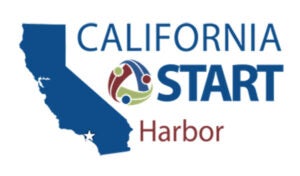
Harbor Regional Center is committed to providing innovative and person-centered services, support, and information for the individuals we serve.
This list includes services commonly purchased by Harbor Regional Center and descriptions of each service. This list was adapted from DDS’ List of Services. This list does not fully include all Harbor Regional Center services and supports.
Fact sheets are brief informational documents on a variety of topics and services offered through Harbor Regional Center.
Services or supports for each person are determined on an individualized basis through the person-centered planning process. Harbor has established policies related to purchased services.
Depending on the needs of each individual, services may include:

To respond to the growing needs of individuals with both an intellectual/developmental disability and a mental health condition, Harbor Regional Center has partnered with YAI for CA START services. YAI supports people of all ages who are experiencing crisis and often work in partnership with the individual, their families and circles of support, and others in the community.
What is START?
The Systemic, Therapeutic, Assessment, Resources and Treatment (START) Model provides mental health crisis support and prevention to people with developmental disabilities and mental/behavioral health needs. Services include crisis planning, crisis response, education, team collaboration, consultation, care management, and therapeutic coaching. All services are person-centered and assess the individual based on their environment and individual need. The START program aims to build capacity through relationships, support families and organizations, and assist individuals in enhancing their overall quality of life.
Who is Eligible for CA START?
CA START services are available for people ages 6 and over who have a documented developmental disability or co-occurring mental/behavioral health need and are receiving regional center services.
Interested in these services?
Please speak to your regional center service coordinator for more information about how to be referred to CA START.
Harbor Regional Center (Harbor) has a Parent Mentor Program to support parents and caregivers in navigating systems and programs that serve individuals with intellectual/developmental disabilities, such as In-Home Supportive Services (IHSS), Supplemental Security Income (SSI), Medi-Cal, etc. The Parent Mentor can assist by providing step-by-step assistance with accessing services and support.
If you are interested and would like to be referred to the program, please contact your Service Coordinator.
Have a Question? Need Assistance?
Harbor Regional Center (Harbor) Parent Mentors will be available in your community to assist individuals with intellectual/developmental disabilities and family members with applications to various programs, answer questions about the regional center or generic services (a service that is provided by a community organization/program, such as In Home Supportive Services or Medi-Cal and CalFresh), help identify resources, and much more!
My name is Tim’an Ford, and I’m your new Peer Advocate at Harbor Regional Center. I’ve been receiving services from Harbor Regional Center (Harbor) since 2016, and through Harbor, I was able to enter the workforce with a full-time job at Sketchers USA. Following that, I returned to university in the fall of 2019 and earned a Bachelor’s degree in Anthropology from UC Santa Cruz in 2021. That means I studied human culture and history with aspirations of becoming an archeologist, as well as contributing to the foundation of a multicultural community with access to vital resources for future generations to use in an ever-changing world. Having joined the ranks of Harbor, I feel I’m one step closer to accomplishing that goal.
I’m here to be a source of support for anyone receiving services from Harbor, as well as their families. I would like to hear about your goals, can help resolve any concerns you might have; I want to be a reliable advocate for individuals receiving our services! Furthermore, I will be an active participant in community events and advisory committee meetings with our partnership programs. If you see me at an event, I invite you to say hello and strike up a conversation!
As a Peer Advocate, the most important thing is helping individuals with a developmental disability find their voice and access the tools necessary to live healthy, sustainable lives as community members. Whether it’s pursuing higher education, accessing the workforce, or even just finding friends with common interests, I’m here to support you!

If you have a concern about your child’s development or if you are supporting a young child who needs specialized care or has a disability, there is help and support through our Early Start services! The Early Start program is California’s early intervention program for infants and toddlers with developmental delays or at risk for having a developmental disability and their families. Early Start services are available throughout the state.
For the next few years, at least until your infant or toddler is three years old, we will be working hand in hand with you to provide the best possible early intervention services for your child. You are not alone. You are part of a caring community and team. We are here to listen and provide you with information, services, and supports. We encourage families to be active participants in the process of planning and decision-making.
From birth to five years, children should reach milestones in development—in the way they play, learn, speak, act, and move. Tracking your child’s development and taking action early when you have a concern can be instrumental in getting them the support they may need.
The Centers for Disease Control Prevention offers free materials and resources through their “Learn the Signs. Act Early” program. These materials are not a substitute for standardized, validated developmental screening tools used by qualifying professionals. Many of the tools are downloadable, free, and available in many languages.
The Early Intervention Program for Infants and Toddlers with Disabilities are provided under the federal Individuals with Disabilities Education Act (IDEA), Part C. Infants and toddlers from birth to 36 months may be eligible for early intervention services if they have a developmental delay in cognitive, communication, social or emotional, adaptive, or physical and motor development, including vision and hearing; an established risk condition with a high probability of resulting in delayed development; or high risk of having a substantial developmental disability due to a combination of biomedical risk factors, as diagnosed by qualified personnel.
Who provides early intervention services?
Early intervention services that are needed for each eligible infant or toddler are purchased or arranged by regional center or a local education agency. Family Resource Centers provide family support services.
How much do services cost?
There is no cost for evaluation, assessment and service coordination. Public or private insurance is accessed for medically necessary therapy services including speech, physical and occupational therapies. Services that are not covered by insurance will be purchased or provided by regional centers or local education agencies.

Services or support for each child, adolescent, and young adult are determined on an individualized basis. Your child transitions into school starting at the age three. Many services that are provided during this age are done through publicly funded agencies, such as health insurance and school districts. During your loved one’s transformative years as they develop through educational services throughout their transition to adulthood, Harbor Regional Center can provide support in a variety of ways.
Service Coordinators may support the family by discussing upcoming Individualized Education Program (IEP) meetings, identifying needs, concerns, and goals, and assisting the parent or caregiver in preparing for some school-related meetings. If needed, the Service Coordinator may arrange for the family to consult with an Education Specialist. The Service Coordinator may also attend the IEP meeting, if invited by the family, to provide support.

While students are enrolled in school transition programs, they may be referred to a work experience program where they can gain some on-the-job experience and learn about how to conduct themselves in a work environment. Your Service Coordinator can assist you in finding out what transition programs are offered by your school district during the school’s individual transition planning process.
Project SEARCH is a national program that promotes work experience in integrated community environments for people with developmental disabilities. Harbor currently works collaboratively with the Los Angeles Unified School District, Kaiser South Bay Medical Center, and Best Buddies to provide a Project SEARCH program in this area. Through this program, students in their final year of school transition gain real work experience and exposure to real work settings, to better prepare them for employment after they leave school.
We encourage you to make decisions to the fullest extent possible. Many adults routinely make decisions on their own behalf with guidance from their family, circles of support like trusted friends, or anyone whom they trust.
There are different options to explore, including:

There are several services available to help you achieve your desired goals with where you live, work, and how you want to participate in your community. Information and resources are available to help you make decisions and choices about your goals. The services or supports you may need are determined on an individualized basis and identified as part of a person-centered planning process. Like the other stages of life, some services are provided by publicly funded community agencies and some are funded by Harbor.
Some of the services and supports that may be available for adults who are no longer attending public school and their families are:
Coordinated Family Support (CFS) Service is a new service option specifically designed for adults who are 18 years and older who:
CFS provides assistance with the coordination of services and supports that allow adults to continue living in their family home such as:
CFS providers will prepare a service plan designed to help reduce or remove barriers to staying in the family home, address challenges, and meet goals. Services will be provided in a manner that respects the language and culture of individuals and their families, and services will be tailored, individualized, and flexible to meet the changing needs and preferences of individuals.
For more information about CFS, you can visit the DDS website and view past DDS Informational Webinars by clicking on the Informational Webinars tab.

Harbor Regional Center offers orientations throughout the year that discuss the various post-secondary education programs that are available. Be sure to visit our calendar regularly.

Harbor Regional Center offers orientations throughout the year that discuss the various available employment programs. Be sure to visit our calendar regularly.
Supported employment services provide individualized support for adults who are out of school and ready to begin their job search. Supported employment services include assessment of individual skills and interests, individualized job development and placement (either individual or group), and on-the-job coaching to promote successful employment. These services are provided in collaboration with the Department of Rehabilitation.
Social Recreation Services
The California State Budget for Fiscal Year 2021-22 included an important change regarding social recreation, camp, and other services. During the economic recession, budget reductions brought about changes to the law that prohibited regional centers from purchasing these services. However, the 2021-22 Budget Act restored the ability for regional centers to fund social recreation, camps, and other services.
The Service Policy was approved by the Department of Developmental Services on May 26, 2022.
We are continuously working to identify local organizations and programs to become a vendor for this service. Harbor Regional Center works with a contracted Financial Management Service (FMS) provider on all payments. Please speak with your service coordination team regarding your interests.
Social Recreation Vendors for Harbor Regional Center